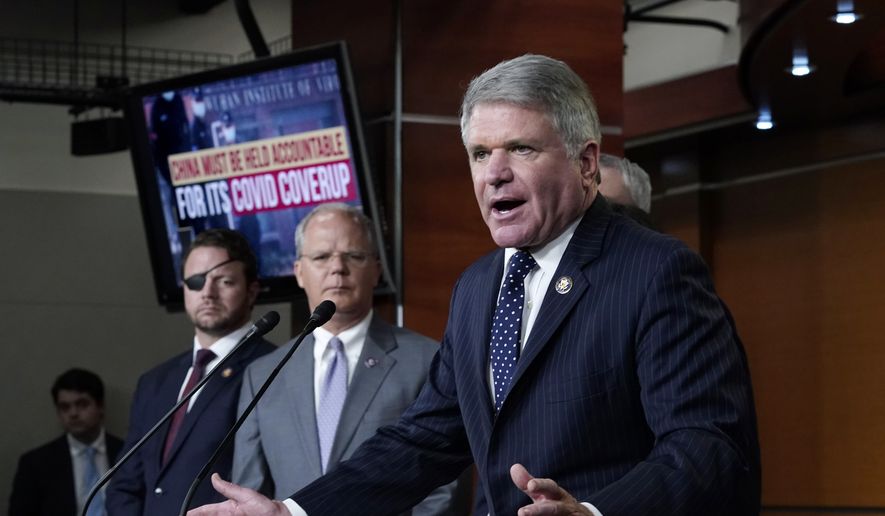A bipartisan group of House lawmakers on Wednesday upped the pressure on President Biden to ensure safe haven for interpreters and other Afghans who helped the U.S. war effort and now face Taliban retaliation when the troops pull out in September.
With the State Department’s visa process ensnarled in a major backlog and a military evacuation plan on ice, the lawmakers said the administration must act before lives are lost.
“He created this,” said Rep. Michael T. McCaul of Texas, the ranking Republican on the Foreign Affairs Committee who is leading the charge to rescue the Afghan allies.
Mr. McCaul said responsibility rests with Mr. Biden: “He made the decision to withdraw from Afghanistan. And we respect that decision that’s been made. But we need to start preparing for what the chaos is going to be once they pull out.”
The increased pressure coincides with Afghan President Ashraf Ghani’s scheduled visit to meet with Mr. Biden on Friday at the White House.
Mr. Biden announced the withdrawal in April, giving the Department of Defense a Sept. 11 deadline to remove all troops from the theater. The retrograde is now more than 50% complete, leading some to believe that the troops will be out of the country before the deadline.
“We only have until the end of July,” Mr. McCaul said. “And then you’re going to see the offensive take place that’s already taking place as I speak.”
New intelligence estimates predict the Taliban could gain control of the country within six months of the withdrawal, The Wall Street Journal first reported earlier this week.
“When that last soldier goes wheels up, these people will have a death sentence,” Rep. Michael Waltz, Florida Republican said. “They will have a bull’s eye … on their back. They are being hunted down as we speak. And this administration, President Biden will have blood on his hands if he does not act now.”
The State Department is sitting on a backlog of 18,000 applications for special visas to bring Afghan allies to the U.S., leaving those collaborators exposed to retaliation by the Taliban.
It could take until next year to fully process the backlog if the State Department moves at its usual speed.
Secretary of State Antony Blinken earlier this month committed to dedicating additional resources to clear the backlog but has since halted visa processing at the U.S. Embassy in Kabul due to a spike in COVID-19 cases in the country.
The substantial backlog has led some to call for the military to evacuate those most at risk, and Chairman of the Joint Chiefs of Staff Gen. Mark Milley testified Wednesday to the House Armed Services Committee that the Pentagon is prepared to do so once directed by the administration.
“There’s no reason that we can’t act now to protect our Afghan allies,” said Rep. Earl Blumenauer, Oregon Democrat. “It’s not only the right thing to do, but it is the smart thing to do because we rely on these partnerships all around the world.”
• Joseph Clark can be reached at jclark@washingtontimes.com.




Please read our comment policy before commenting.